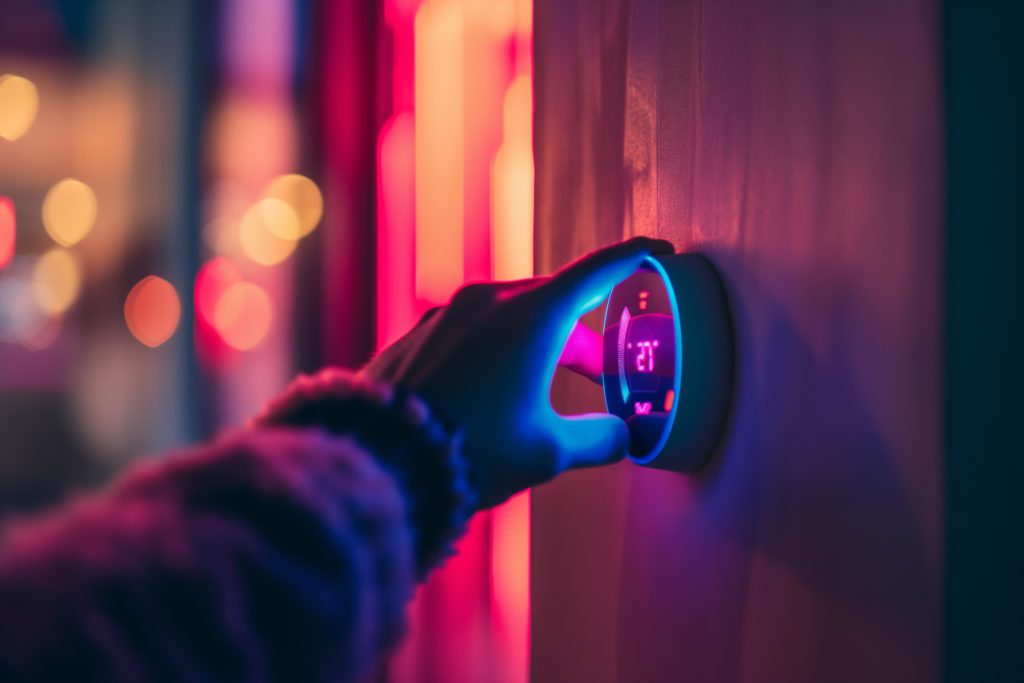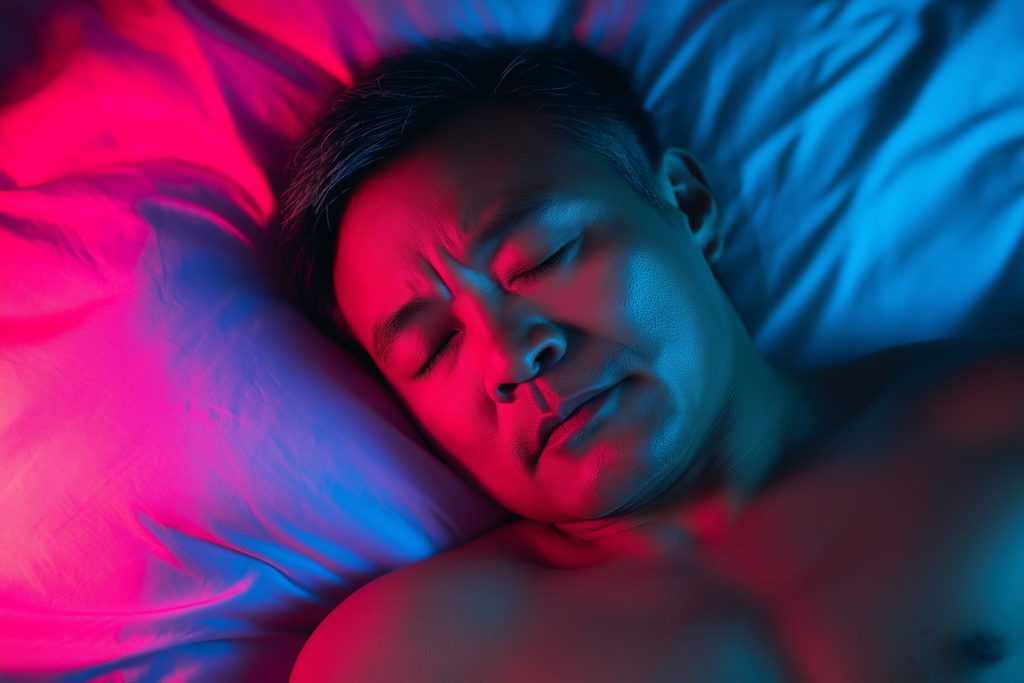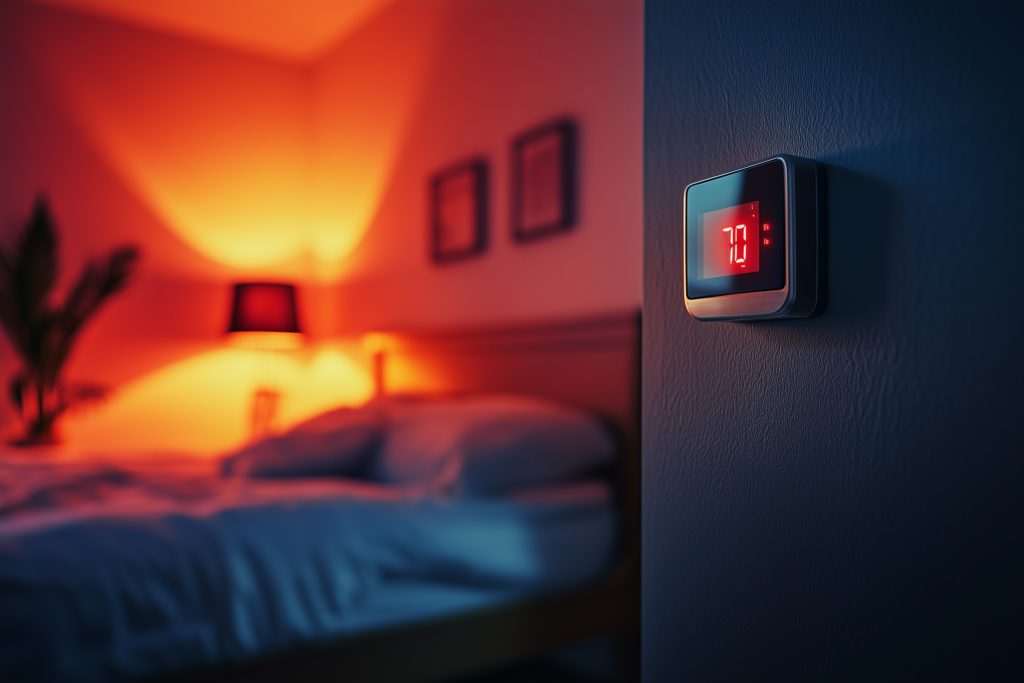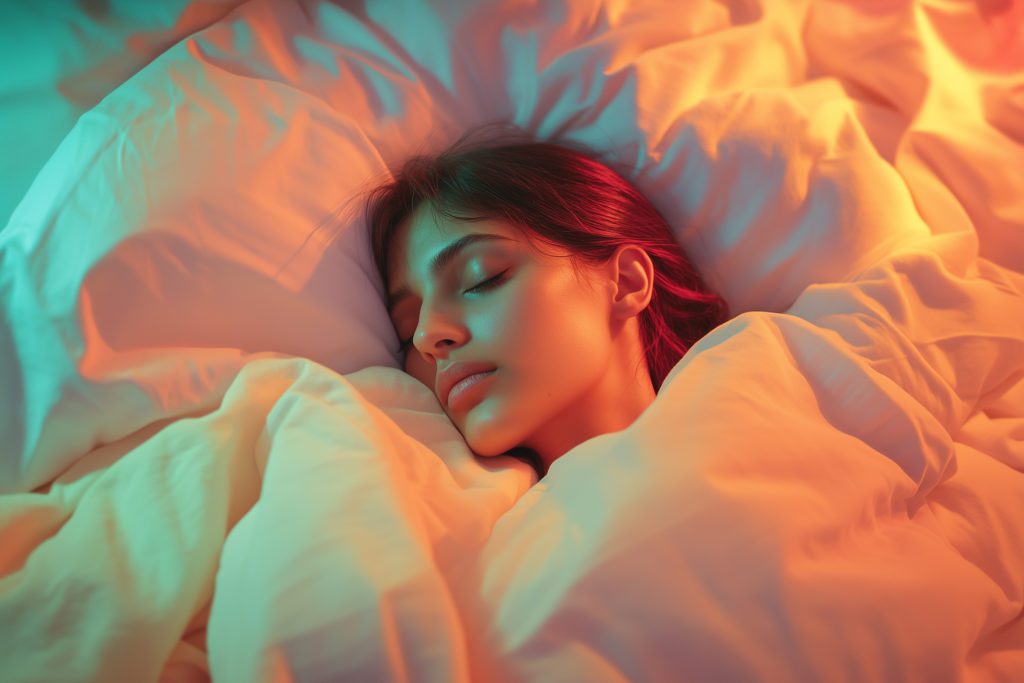
What Happens to Body Temperature When We Sleep?
As you sleep, your body is still working hard. Discover the link between body temperature and sleep, among other changes that occur every night.

While it may not seem like it, many things are going on in your body as you sleep. These changes depend on which part of the sleep cycle you're in. One of these primary shifts is within your body temperature. Your temperature significantly affects how well you sleep.
By learning more about your body temperature and how it changes during sleep, you'll have a better understanding of how to prepare yourself for a good night's rest.
What Is Thermoregulation?
Thermoregulation is an essential process that occurs in your body, allowing it to maintain a steady core temperature while preventing thermal stress. This regulation helps support your brain, which is responsible for other bodily functions. Humans and animals undergo thermoregulation, and how warm or cool your body gets is in direct response to the temperature around it. There are several methods the human body uses to control their body temperature:
- Sweating: When the body overheats, sweat glands release perspiration to lower skin temperature and reduce body heat.
- Shivering: When the body gets too cold, the muscles produce heat by shivering. Shivering occurs if your internal body temperature is too low.
- Nonshivering thermogenesis: This process occurs in your body's adipose tissue, which is the fat that helps maintain your body temperature when you're too cold.
- Cutaneous vasoconstriction: If you get too cold, your blood vessels constrict. This constriction then reduces blood flow to the skin. By constricting, heat is retained to allow the functioning of vital processes throughout the body.
Extreme temperatures or health conditions can affect thermoregulation. If your body is unable to regulate its internal temperature, you may be at risk for hypothermia, hyperthermia, heat stroke or anhidrosis (an inability to sweat).
While warm-blooded animals have physiological ways to regulate body temperature, cold-blooded animals rely on external factors. For this reason, warm-blooded animals have a higher body temperature than cold-blooded ones.
The Role of Thermoregulation During Sleep
Many factors can impact sleep quality. Thermoregulation is a significant factor in achieving a good night's sleep. As nighttime falls, your body prepares for sleep thanks to your circadian rhythm. Your circadian rhythm also prompts your core temperature to cool. For mammals, this may encourage behaviors like curling up, seeking warmth and building nests to help compensate for this drop in temperature. These actions are called behavioral thermoregulation.
Your body and brain temperature naturally decrease when you experience non-rapid eye movement sleep. As you transition into rapid eye movement, your body temperature increases.
The thermoregulation process is critical to how well you sleep at night and how your body prepares for sleep. However, some health conditions can impact this process and, therefore, hinder your ability to sleep soundly:
- Menopause: Menopause can cause hot flashes and night sweats. These changes occur when a woman's hormone levels change, causing an increase in body temperature.
- Pregnancy: Women produce higher estrogen levels during pregnancy, which causes the body temperature to slightly increase.
- Sleep Deprivation: When you don't get enough sleep, you experience hormonal imbalances, which can raise your core body temperature and cause you to feel hot throughout the night.
Many people feel hotter at night if they have a cold or a fever due to their body's attempt at fighting off infection. Additionally, sleep apnea causes significant sleep disturbances throughout the night, which can increase body temperature. Using a CPAP machine can alleviate sleep apnea, which leads to improved sleep patterns and restoration of the body's ability to thermoregulate effectively.
How To Cool Your Body Temperature Down Before Bedtime
Whether you suffer from a chronic condition that interferes with your ability to cool down at night or you're simply looking for a few ways to ease into your bedtime routine, there are several things you can do to help you prepare your body for bed:
- Take a warm shower: While this seems counterintuitive, taking a warm shower will lower your body's core temperature once you're done. It causes the blood vessels in your skin to dilate which cools off your body.
- Eat smaller, non-spicy meals before bed: Heavy meals cause your body to use more energy for digestion, raising your temperature. Stick with light, healthy options if you eat close to bedtime.
- Set your bedroom thermostat at the right temperature: Experts say that the ideal bedroom temperature for sleep is between 60 and 67° F. If it’s too high or low, you won’t be able to sleep well.
- Cool off your pulse points: Placing icepacks on your wrists, ankles and elbows can create a cooling effect throughout your body.
- Don't drink alcohol before bedtime: Drinking not only significantly affects your sleep quality, but it can cause night sweats, too. Instead of pouring yourself a nightcap, stick to a warm cup of decaffeinated tea or milk.
- Drink ice water throughout the day: Sweating in your sleep can lead to dehydration, so make sure to hydrate and place a glass of ice water by your bedside so it's available if you wake up thirsty.
- Freeze a washcloth: Freezing and placing a washcloth on your head or face before bed can help cool you down and reduce your body temperature.
- Keep your blinds shut during the daytime: Keeping your blinds open lets in excess heat, which affects your ability to sleep comfortably. Blackout curtains can keep the heat and the light out, which is especially helpful if you live in a warmer climate.
Body temperature and sleep quality go hand in hand, and healthy thermoregulation is vital for a restful night. If you make these changes and still wake up throughout the night feeling hot, you may want to see your doctor.
Many factors play a role in efficient thermoregulation, including several medical conditions. By ruling out conditions or receiving a proper diagnosis, you can find an effective treatment that will help you enjoy a good night's rest.

Written by
Emily Mendez
Emily Mendez is a former therapist and mental health author. She is one of the leading voices in mental health. Emily's writing has appeared in eCounseling, SonderMind, and more. Emily is frequently interviewed by Healthline, Fatherly, INSIDER, Family Circle, and other national media for her advice and expert opinion on the latest mental health topics.
Download Pillow
Get help
Press & News
Legal
Connect
X (Twitter)
Company
Copyright © Neybox Digital Ltd.



